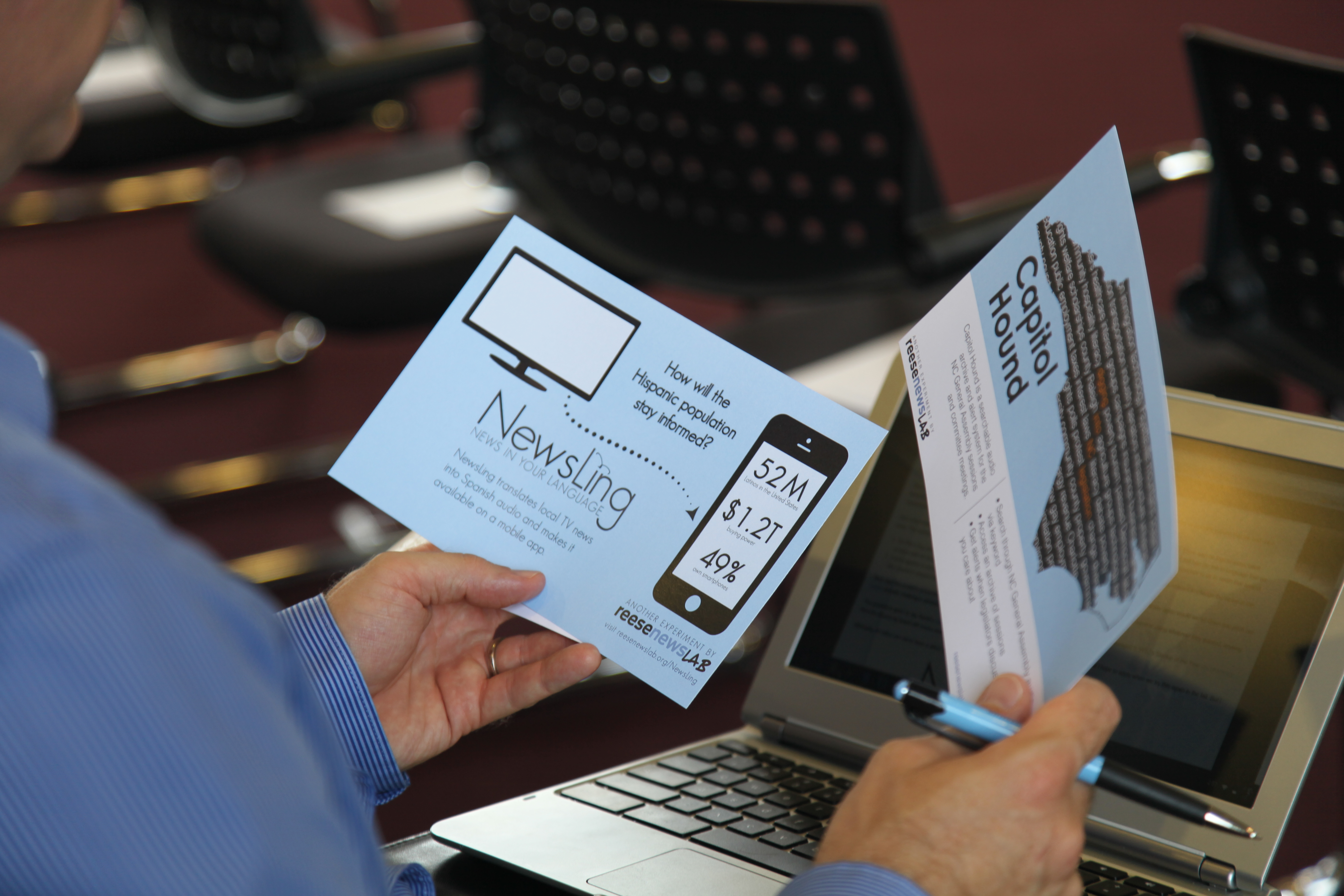Seventeen media innovators will have a chance to push their projects from idea to actual demos, thanks to grants of $35,000 each from the Knight Prototype Fund. The Knight Foundation on Tuesday announced the most recent winners of the fund, which accepts applications on a quarterly basis and is one of several moves by Knight to accelerate innovation in journalism and beyond.
Several of the winners among this round include technologies to improve transparency and help journalists extract information, such as Tabula, an open-source tool that allows users pull data from PDF documents, and Minezy, which lets users easily find data in email archives received through Freedom of Information Act requests.
Other projects focus on making government data more open and effective, such as OpenDataPhilly.org, which is seeking to expand its site to boost government transparency and citizen engagement in the Philadelphia region, and Capitol Hound, which is a searchable audio index and alert system for North Carolina General Assembly sessions and committee meetings. We’ve watched Reese News Lab’s efforts in taking Capitol Hound from conception to product here on Idea Lab.
Still other projects focus on tackling disaster relief, Internet connectivity, health care costs, and more. Read on to find out more about the winners.
meet the winners
Capitol Hound: Offering the public a searchable database of the transcripts of North Carolina legislative sessions, including an audio archive and alert system for General Assembly sessions and committee meetings.
Expung.io: Producing a youth-developed mobile app designed to help juvenile offenders navigate complex government and legal processes.
GovLoop Academy: Developing an online education site for federal, state and local government employees that will feature free, short training content: webinars, videos and podcasts.
LibraryBox: Improving a device that provides access to digital information in areas with poor or no Internet connectivity.
Louder: Testing the use of a crowdfunded advertising platform that allows users to donate small amounts to spread news and information that is important to them.
Minezy: Creating a tool to help journalists more easily find information in email archives received through Freedom of Information Act requests by analyzing data and highlighting important social relationships, dates and topics.
MLRun: Helping journalists create deeper stories througha user-friendly Web platform that helps analyze large data sets by discovering patterns in documents.
News On Demand: increasing the “quality time” people spend with news by building a system that provides news based on a reader’s available time and attention level.
Open Data Philly: Improving government transparency and citizen engagement by expanding OpenDataPhilly.org, which provides access to data related to the Philadelphia region.
PressSecure: Preserving privacy and freedom of expression by developing a secure media sharing and storage app for citizen journalists that will give them more control over their mobile content.
Project Fission: Creating a newsroom tool that allows journalists to collect and explore small units of information that can be pulled together to create new story formats.
SmartResponse.org: Tracking the effectiveness of disaster relief organizations to provide people with better information on the capacity and funding of organizations directly involved in relief efforts.
Tabula: Improving an open-source tool that makes it easier for journalists to extract data from PDF documents.
Tipsy: Making it easier for content providers to generate revenue by developing a new way to fund news sites through micropayments from readers.
Uncovering Cost, Examining Impact: Developing a crowdsourcing tool to collect data from California residents about what they pay for common health care procedures and making the information available to journalists and the public through KQED, Southern California Public Radio and ClearHealthCosts.com.
Whilecard: Creating a tool that recognizes user preferences for news and information based on their activities (i.e. world and sports in the morning, and stocks and tech when working).
Wiredcraft: Creating an open source tool that allows people to collaboratively edit and publish geographic data and related maps quickly and efficiently.
Stay tuned for more information on the winners. You’ll be able to read more about some of the projects here on Idea Lab.
Desiree Everts is the associate editor for Idea Lab and PBS MediaShift. She’s dabbled in digital media for the past decade including stints at CNET News and Wired magazine.


Thanks! For those interested, Project Fission, exploring the atomic unit of news, will be happening at http://fission.io